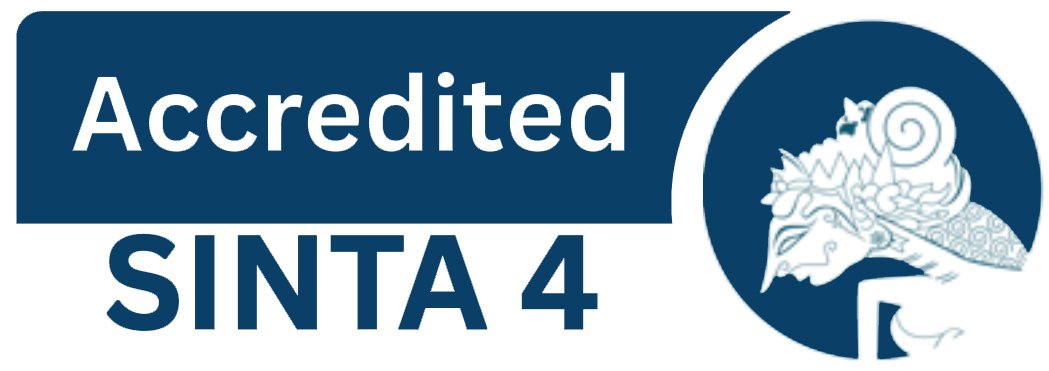PERAN INTERAKSI ORANGTUA PADA KETERAMPILAN SOSIAL SISWA SEKOLAH DASAR YANG MEMILIKI HAMBATAN ADHD
DOI:
https://doi.org/10.22460/collase.v3i3.4201Keywords:
ADHD, Keterampilan Sosial, Interaksi Orangtua.Abstract
Penelitian ini bertujuan untuk menganalisis peran interaksi orangtua pada keterampilan sosial siswa Sekolah Dasar yang memiliki hambatan attention deficit hyperactivity disorder (ADHD). Anak-anak dengan attention deficit hyperactivity disorder (ADHD) Usia sekolah Dasar sering mengalami masalah dalam interaksi sosial dengan teman sebaya dan dihadapkan dengan penolakan teman sebaya. Pendekatan yang paling umum untuk masalah sosial pada anak-anak adalah pengasuhan orangtuanya di rumah. Metode penelitian yang digunakan yaitu penelitian kualitatif yang bersifat studi pustaka  (library research). Berdasarkan hasil studi pustaka diperoleh gambaran bahwa interaksi orangtua yang positif seperti mampu meregulasi emosi dengan baik dalam berinteraksi dengan anaknya yang memiliki hambatan ADHD dapat berdampak secara efektif pada anak dalam mengatur emosinya juga. Sehingga hal ini dapat meminimalisir rasa frustrasi yang menjadi variabel penting yang memprediksi ketidakpatuhan dan agresi anak ADHD pada teman sebaya. Anak juga akan mengembangkan sikap yang menyenangkan terhadap lingkungan sosialnya terutama dengan teman sebaya.
References
Adiyanti, M. G. (1999). Skala Keterampilan Sosial. Laporan penelitian.
American Psychiatric Association. (2000). Diagnostic criteria from dsM-iV-tr. American Psychiatric Pub.
Anderson, C. A., Hinshaw, S. P., & Simmel, C. (1994). Mother-child interactions in ADHD and comparison boys: Relationships with overt and covert externalizing behavior. Journal of abnormal child psychology, 22(2), 247-265.
Barkley, R. A. (1997). ADHD And The Nature Of Self-Control. Guilford Press.
Barkley, R. A. (2006). Attention-Deficit/Hyperactivity Disorder. Guilford Publications.
Barkley, R. A., Murphy, K. R., & Fischer, M. (2010). ADHD in adults: What the science says. Guilford Press.
Bierman, K. L., & Welsh, J. A. (2000). Assessing social dysfunction: The contributions of laboratory and performance-based measures. Journal of Clinical Child Psychology, 29(4), 526-539.
Cartledge, G., & Milburn, J. F. (1995). Teaching social skills to children and youth: Innovative approaches. Allyn & Bacon.
Chaplin, T. M., Cole, P. M., & Zahn-Waxler, C. (2005). Parental socialization of emotion expression: gender differences and relations to child adjustment. Emotion, 5(1), 80.
Crick, N. R., & Dodge, K. A. (1999). ‘Superiority’is in the eye of the beholder: A comment on Sutton, Smith, and Swettenham. Social Development, 8(1), 128-131.
DuPaul, G. J., McGoey, K. E., Eckert, T. L., & VanBrakle, J. (2001). Preschool children with attention-deficit/hyperactivity disorder: impairments in behavioral, social, and school functioning. Journal of the American Academy of Child & Adolescent Psychiatry, 40(5), 508-515.
Dowd, T. P., & Tierney, J. (2005). Teaching social skills to youth: A step-by-step guide to 182 basic to complex skills plus helpful teaching techniques. Boys Town Press.
Eisenberg, N., Cumberland, A., & Spinrad, T. L. (1998). Parental socialization of emotion. Psychological inquiry, 9(4), 241-273.
Egger, H. L., & Angold, A. (2006). Common emotional and behavioral disorders in preschool children: presentation, nosology, and epidemiology. Journal of child psychology and psychiatry, 47(3â€4), 313-337.
Hadi, S . (1995). Metode Research, Jilid I, Yogyakarta: Sandi Offset
Keown, L. J. (2012). Predictors of boys’ ADHD symptoms from early to middle childhood: The role of father–child and mother–child interactions. Journal of abnormal child psychology, 40(4), 569-581.
Lynam, D. R. (1996). Early identification of chronic offenders: Who is the fledgling psychopath?. Psychological bulletin, 120(2), 209.
Gresham, F. M. (1986). Conceptual and definitional issues in the assessment of children's social skills: Implications for classifications and training. Journal of clinical child psychology, 15(1), 3-15.
Guevremont, D. C., & Dumas, M. C. (1994). Peer relationship problems and disruptive behavior disorders. Journal of Emotional and Behavioral Disorders, 2(3), 164-172.
Landau, S., & Moore, L. A. (1991). Social skill deficits in children with attention-deficit hyperactivity disorder. School Psychology Review, 20(2), 235-251.
Maccoby, E. E. (2000). Parenting and its effects on children: On reading and misreading behavior genetics. Annual review of psychology, 51(1), 1-27.
Melnick, S. M., & Hinshaw, S. P. (2000). Emotion regulation and parenting in AD/HD and comparison boys: Linkages with social behaviors and peer preference. Journal of abnormal child psychology, 28(1), 73-86.
Minde, K., Eakin, L., Hechtman, L., Ochs, E., Bouffard, R., Greenfield, B., & Looper, K. (2003). The psychosocial functioning of children and spouses of adults with ADHD. Journal of Child Psychology and Psychiatry, 44(4), 637-646.
Park, J. L., Hudec, K. L., & Johnston, C. (2017). Parental ADHD symptoms and parenting behaviors: A meta-analytic review. Clinical psychology review, 56, 25-39.
Patmonodewo, S. (2000). Pendidikan anak prasekolah. Rineka Cipta bekerjasama dengan Departemen Pendidikan & Kebudayaan.
Reid, J. B., Patterson, G. R., & Snyder, J. E. (2002). Antisocial behavior in children and adolescents: A developmental analysis and model for intervention. American Psychological Association.
Smith, D. D., & Tyler, N. C. (2010). Introduction to special education: Making a difference. Merrill/Pearson Education.
Spence, S. H., Barrett, P. M., & Turner, C. M. (2003). Psychometric properties of the Spence Children’s Anxiety Scale with young adolescents. Journal of anxiety disorders, 17(6), 605-625.
Tronick, E. Z., & Cohn, J. F. (1989). Infant-mother face-to-face interaction: Age and gender differences in coordination and the occurrence of miscoordination. Child development, 85-92.
Van der Oord, S., Van der Meulen, E. M., Prins, P. J., Oosterlaan, J., Buitelaar, J. K., & Emmelkamp, P. M. (2005). A psychometric evaluation of the social skills rating system in children with attention deficit hyperactivity disorder. Behaviour research and therapy, 43(6), 733-746.



